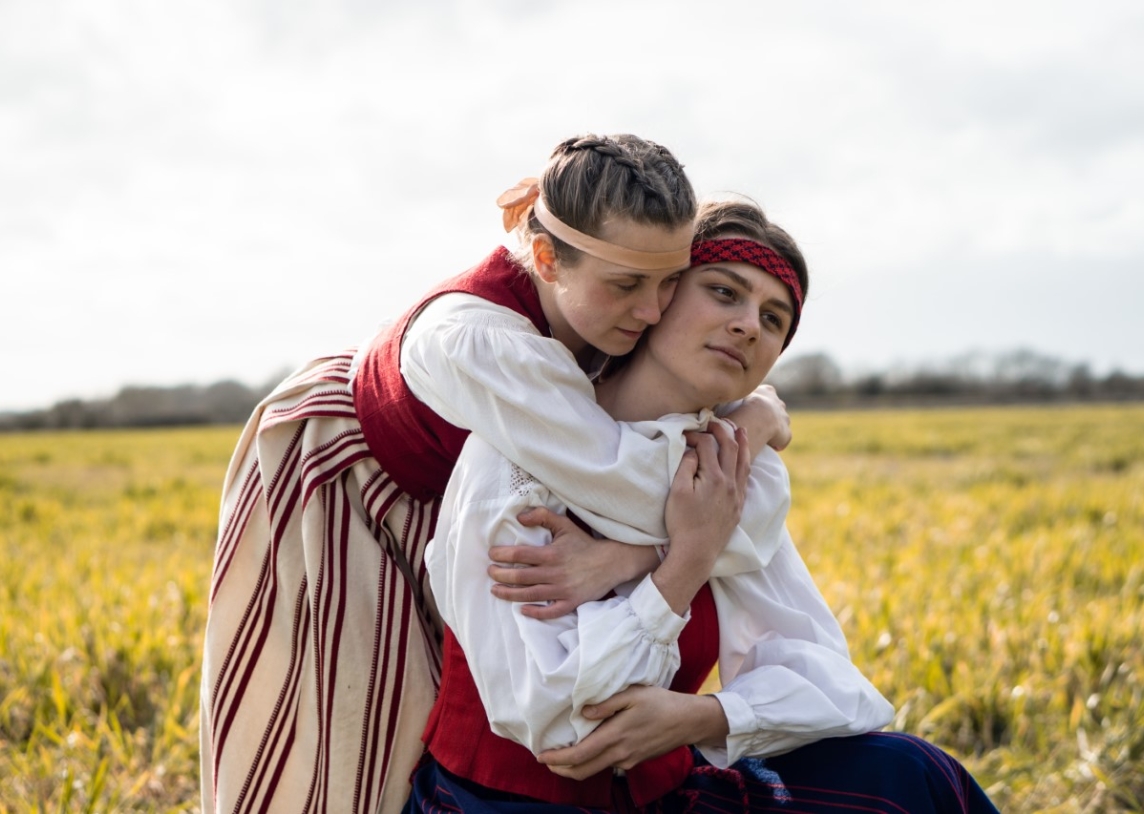News
Our Field at Twilight
Our Field at Twilight
theSpace on the Mile
22-27 August. 1.40pm
by Gareth K Vile
Experience striking puppetry and immersive storytelling.
“I think there's something extremely intimate about a burglary. Invading other peoples' spaces. Going through their most private belongings.”
An insomniac mother and an anxious pot-head spend their existence trapped in a
workers' cult in Northern Europe. Their milk turns sour when a stranger burgles their farmhouse, digging up the dirt from their past. Will they welcome her, or remain in their twilight state?
Gareth K Vile speaks to Olivia Catchpole
What role do puppets play in the production? As a company, have you featured puppetry in other work?
In Our Field at Twilight The puppets represent an alternative to the reality the characters find themselves in, especially in rediscovering the lost natural world. We feel that the ethereal nature of puppets makes them the most conducive to getting this across.
This is actually the first time we have used puppets in a production, and quite new to us, which is exciting. It has led to many discoveries and we hope to make it a big part of our work from now on.
Would you place your use of puppetry in any particular tradition?
Our puppets are rod puppets (one small and one life sized cow). They are based in West Bangal and Orissa traditions with a western aesthetic. They are made from simple materials, newspapers etc, echoing traditions of creating stories using anything at hand. This is important to us in celebrating Vilma's grandmother's experience of creating games with her children using materials from their farm.
The play speaks of a dystopian future: how far does this relate to the dystopian present we appear to have ended up with?
In many ways the play's dystopian future is very linked to present crises. We hope that it might cause the audience to reflect on where we could end up if the current culture of over productivity and lack of provision for vulnerability in our culture continue to become more extreme.
Of course, with the continuing decline of biodiversity which is already happening on a huge scale, and the scarcity which this is creating, our present reality does not seem so far removed from what we have created in our play.
You also deal with some weighty topics: is it important for the company to address issues through performance?
It is definitely very important for us to address contemporary issues. We hope to use the potential of theatre to create visions of alternatives and encourage audiences to engage critically with the world around them.
The interactive nature of the show will help to engage the audiences with these issues. We also plan to use the puppets to give the audience the opportunity to feed back their thoughts at the end of the performance.
Do you identify your work within any tradition?
Our work is based on a mixture of traditions, from clowning and satire, to classical prose and absurdism. We also admire traditions of simple storytelling (including puppetry of course) and Brechtian forms of engaging our audiences.
Olivia comes from a community theatre training background and Vilma and Madeleine come from a World performance training background so this definitely influences our work. Our Field at Twilight, for example, reflects Finnish language and tradition.

